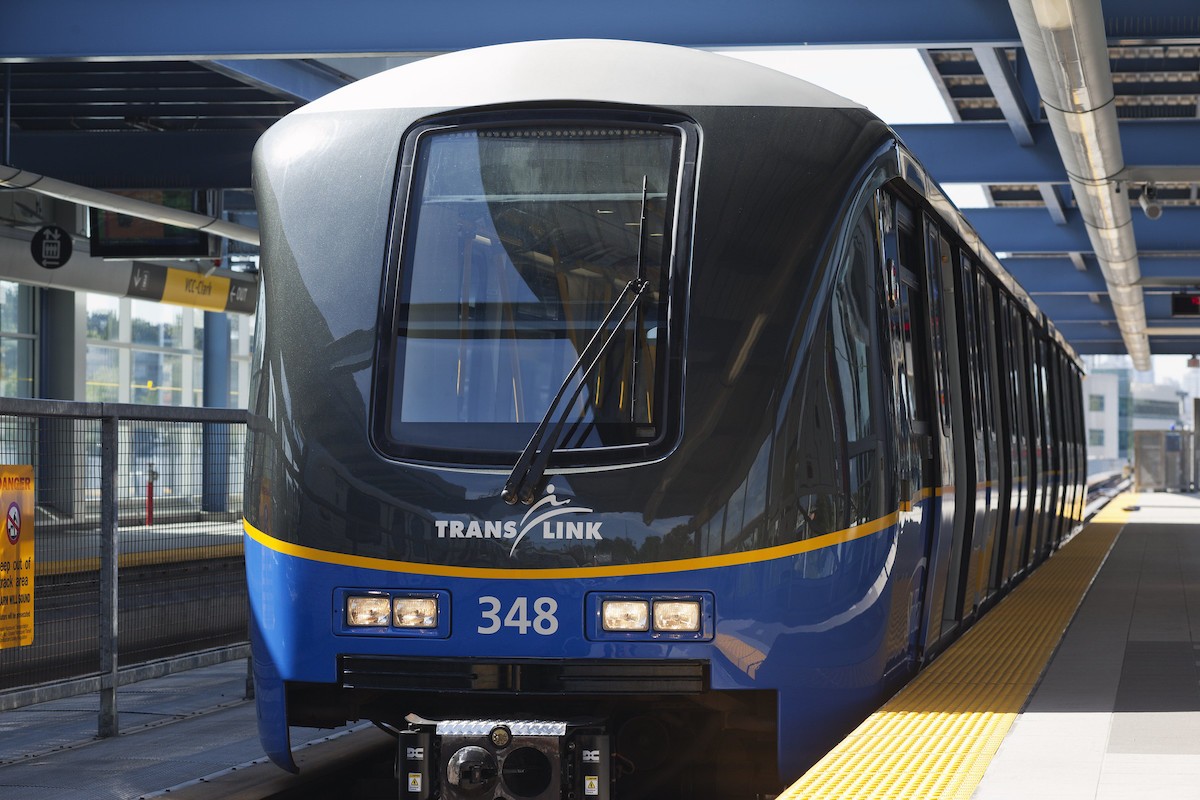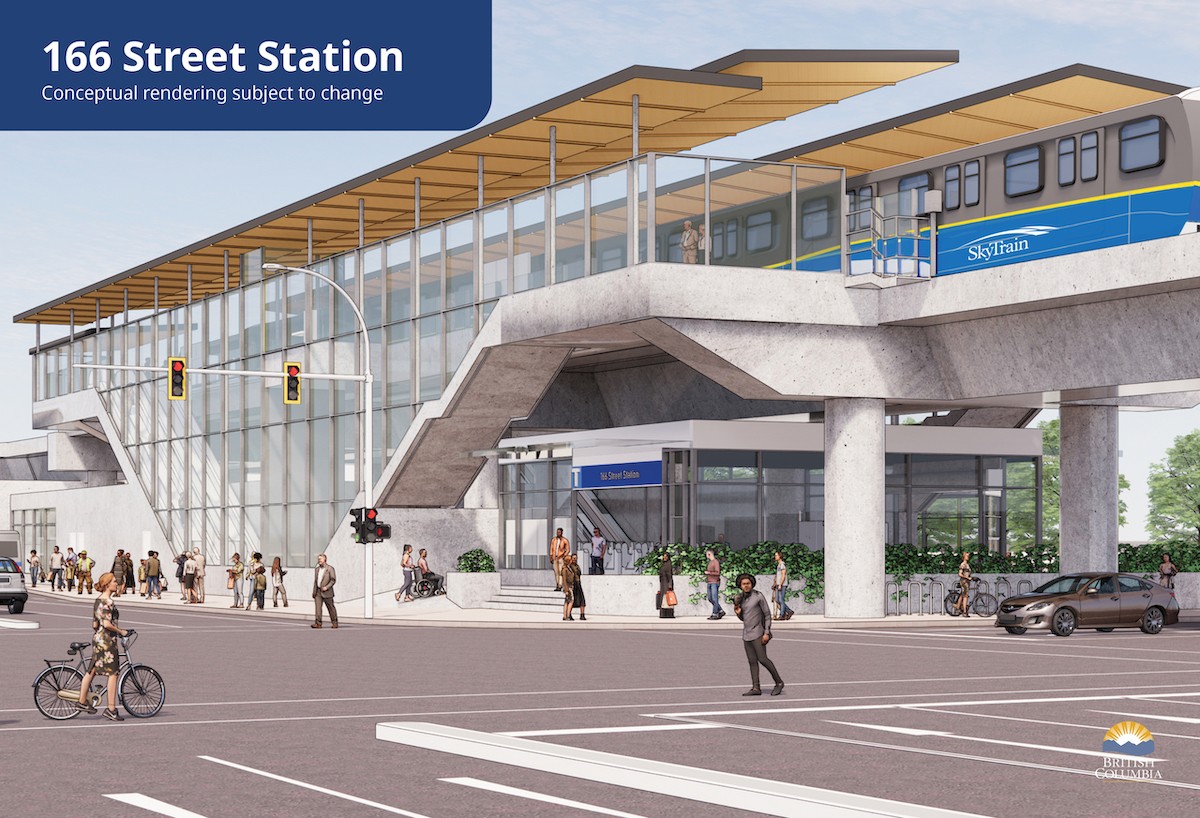Metro Vancouver mayors call for emergency action on transit
The funding will help with increasing ridership and ongoing post-pandemic financial challenges.

Province of B.C.
Key Takeaways:
- Metro Vancouver mayors say they need $250 million in emergency funding from Ottawa to help the region’s transit systems cope with growing ridership.
- They also want to accelerate the delivery of the Permanent Transit fund by two years and Permanently double the Canada Community-Building Fund.
- The mayors want to create a national commission with provinces, transit agencies and local governments to develop a new funding model for public transit.
- The population of Metro Vancouver is estimated to increase by more than one million people by 2050.
The Whole Story:
Metro Vancouver mayors are asking the federal government for $250 million to help the region’s transit system sustain and expand services in the face of increasing ridership and ongoing post-pandemic financial challenges.
The TransLink Mayors’ Council on Regional Transportation has made a formal request to the Federal Government to renew its partnership with the region and the province.
In a pre-budget submission to the Minister of Finance, the Mayors’ Council is specifically calling for emergency relief funding of $250 million – to be matched by the B.C. government – to help offset the ongoing financial impacts of the COVID-19 pandemic. The council added that the funds would also accelerate the delivery of the federal Permanent Transit Fund from 2026/27 to 2024/25, to keep TransLink’s new 10-year expansion plan, the Transport 2050 Ten-Year Priorities, on track.
“Our region is growing faster than ever and our transit system will struggle to keep up with forecasted population growth if we don’t act now to secure funding from senior governments,” said Port Coquitlam Mayor Brad West, chair of the Mayors’ Council. “We just need to look at the new federal immigration targets to see that a record number of people will be settling here and adding to the demands on our transit network. This is a critical point to invest in Metro Vancouver’s long-term infrastructure needs and the Mayors’ Council is determined to make sure this message is being heard in Ottawa.”
The population of Metro Vancouver is estimated to increase by more than one million people by 2050. The council stated that the growth will be “supercharged by new federal immigration targets, critical to addressing Canada’s labour shortage and economic growth.”
It is estimated that 1.45 million people will immigrate to Canada between now and 2025, 1 of every 8 of whom are forecast to end up in Metro Vancouver.
The council stated that pressures on the transit system are compounded by the rapid ridership growth across Metro Vancouver, with transit boardings already at 82% of pre-pandemic levels – the highest among North America’s big cities. They added that overcrowding on the system, especially South of the Fraser and other fast-growing communities, is approaching levels not seen since before the pandemic when TransLink was struggling to keep up with surging demand.

The Mayors’ Council is calling on the federal government to:
- Provide $250 million in Emergency Transit Relief Funding to TransLink, to be matched by the Government of BC, to protect existing transit service levels in 2023-25;
- Accelerate the delivery of the Permanent Transit Fund (PTF) by two years from the original commitment of 2026/27 to 2024/25 to avoid delaying the transit service expansion needed to meet national and provincial GHG emission targets, respond to the housing affordability crisis and serve quickly growing ridership;
- Permanently double the Canada Community-Building Fund (formerly known as the Gas Tax Fund) as was done in 2019, 2021 and 2022, and increase its annual escalator to 3.5% to better reflect construction cost inflation; and,
- Launch a tri-partite national commission together with provinces, transit agencies and local governments to develop a new funding model for public transit that is more resilient and equitable by avoiding overreliance on regressive sources such as transit fares and property taxes.
The 10-Year Priorities, the plan that was re-endorsed unanimously by the Mayors’ Council on January 26, 2023, includes doubling of bus service region-wide, nine new Bus Rapid Transit (BRT) lines,
expansion of active transportation infrastructure, and SkyTrain service expansion to meet forecasted population growth and ensure more residents have easy access to transit.
“Strengthening transportation links between Metro Vancouver communities is a vital step towards a more prosperous, sustainable future for our region,” said Ken Sim, Mayor of Vancouver. “Metro Vancouver mayors are united in our determination to secure these important investments and we are excited about the positive impacts that they will have.”

